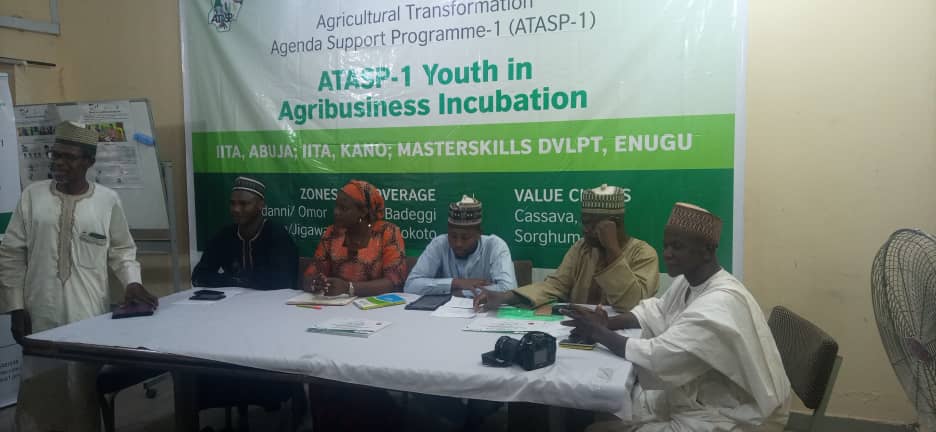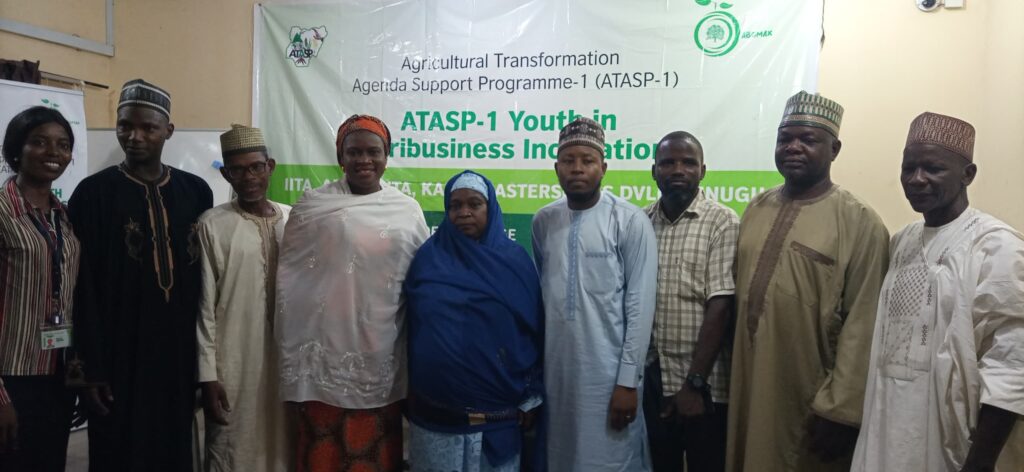The Agricultural Transformation Agenda Support Programme Phase One (ATASP-1) and ABOMAX concluded a highly intensive training initiative aimed at revolutionizing the agricultural sector and empowering youth in Agribusiness Incubation.
Daily News 24 reports that the program, which fostered innovation in the agricultural sector, wrapped up with a buzz of enthusiasm and accomplishment.
Hosted at the International Institute of Tropical Agriculture (IITA) Tarauni in Kano State, the program brought together 50 participants — 30 male and 20 female, from six local government areas in Kano and five in Jigawa.
Read Also: ATASP-1, ABOMAX provide agriculture entrepreneurial skills to youths in Kano, Jigawa states
The training program spanned three key value chains: cassava, rice, and sorghum, and was implemented in collaboration with partners such as the International Institute of Tropical Agriculture (IITA), FCAPT, and Mafa Integrated Farms Limited, among others.

Heather Ronke Akanni, Managing Director and Project Manager at ABOMAX, highlighted the program’s objective saying, “The essence is to catch them young and make them contribute naturally by aligning their efforts with Mr. President’s food security agenda.”
Mrs. Akanni further emphasized that participants were equipped with essential skills pivotal to the program’s goals: “They are being taught soft skills to facilitate their interpersonal relationship in their business. They have been exposed to business plans and export opportunities in Agribusiness, imparted agronomic practices, and presented various avenues to add value in their chosen value chains of cassava, rice, and sorghum.”
In agreement, Sunusi Muhammad, Zonal Agribusiness Specialist representing the oriental zone, reiterated the program’s significance in breaking economic barriers in Nigeria by unlocking jobs and promoting self-reliant small-scale business models in the agricultural sector.
“The country so much relies on agriculture right now, and that is why we say let us catch them young so we can instill their interest in agriculture. Agriculture is not all about production just like people have been saying but is also about agro-inputting. We sell food, seeds, fertilizers, and pesticides, and that is just one aspect. We focus on three value chains: cassava, rice, and sorghum, which we can use to make complementary food. We are trying to diversify the usage of Agricultural products.”
The Ceremony
Mr. Muhammad expressed satisfaction with the program’s outcomes and stressed the importance of applying newfound knowledge practically.
“Through this training, participants have acquired skills in crop production, processing, packaging, and branding to enhance market penetration. Financial literacy was also taught to enable them to secure, utilize, and maximize financial resources.”

Participants praised ATASP-1 and ABOMAX for the impactful training and empowerment received during the workshop.
Saminu Sani Garuba and others expressed profound gratitude, saying, “We are grateful for this opportunity. Many of us are graduates and we are not working, but with what we have learned now equipped with the knowledge to view farming as a viable business venture, we can return to our various communities and establish successful Agribusiness.”
Following the completion of the program in Kano and Jigawa, the workshop, which spans seven states organized into four zones: Adanni and Omor, Bida and Badeggi, Kano and Jigawa, and Kebbi and Sokoto; will proceed to train participants from Kebbi and Sokoto next.




ATASP-1 is very good company but if you follow ATASP-1 instruction life be changed
ATASP-1 is very good company but if you follow ATASP-1 instruction life be changed because we bata ndaba our life also changed